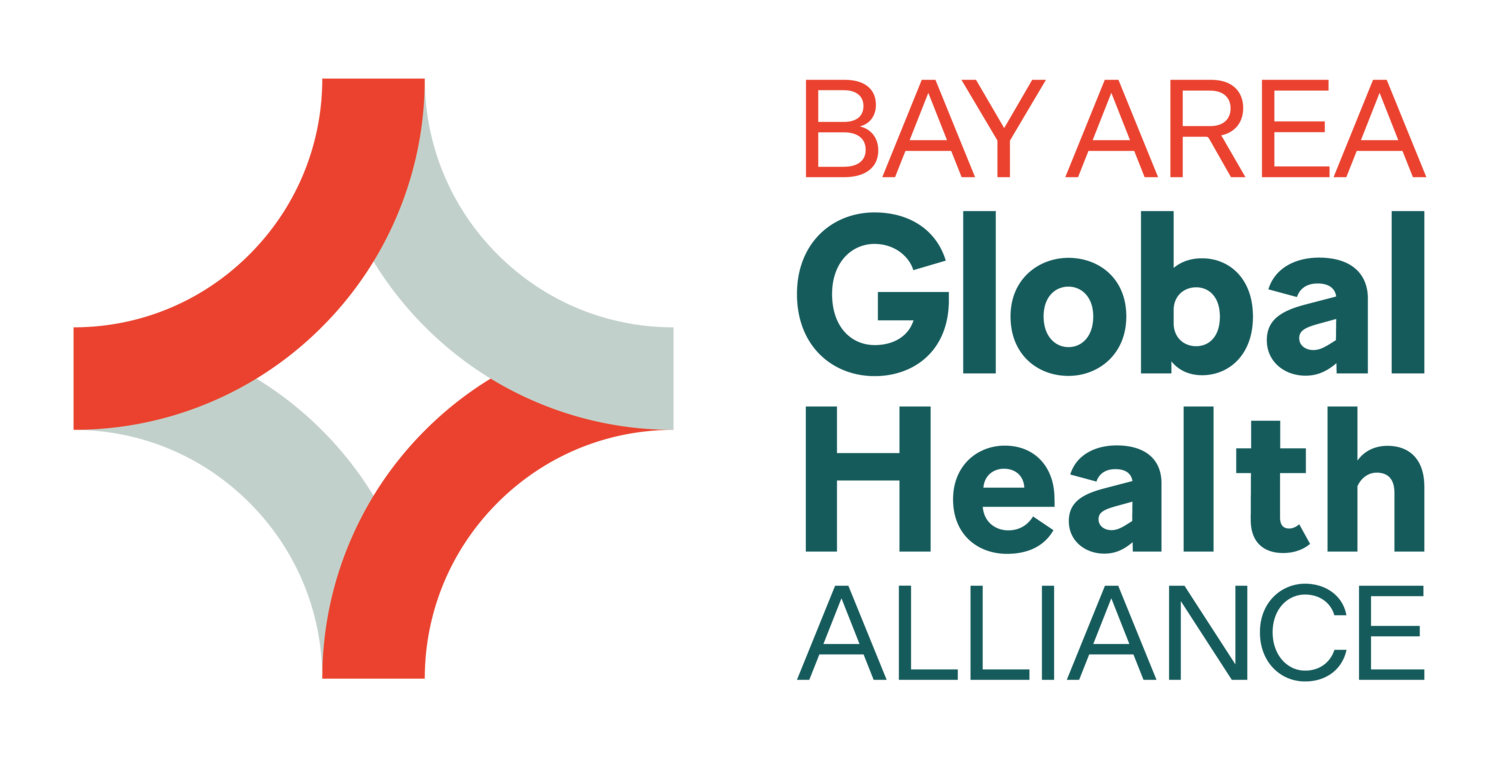Considerable advancements—and significant investments—have been made in global health. Numerous evidence-based interventions, however, fail to reach their full potential, hindered by systemic barriers that can exacerbate health inequities.¹ The Bay Area Global Health Alliance, (the Alliance) recently undertook a study to leverage the multidisciplinary, multi-sector strength of its members to address these challenges through the lens of implementation science.
The results of this study are captured in the insights report, Implementing for Health Equity: Narrowing the Know-Do Gap. (You can download the report here). The report outlines the barriers and actionable strategies and frameworks to ultimately close the evidence-to-practice gap and achieve greater health equity. The insights and recommendations presented are designed to guide stakeholders across the public, private, and nonprofit sectors towards more effective and equitable health outcomes.
The report highlights seven key barriers, which were consistently reported by interviewees from across sectors and geographies. Solutions for addressing obstacles effectively and sustainably were largely unknown by the 150 stakeholders and participants. More importantly, the study highlighted that system changes and/or multi-sectoral approaches were required to address global health challenges, but few organizations currently have incentive to tackle the challenges in this way. For example, thought leaders often advocate for and elevate the importance of multi-sector partnerships,² but partnership development is not prioritized or incentivized by funders, it is time-consuming, and little attention is given to what is required to make effective partnerships succeed.
To enhance health equity through implementation science, the report recommends testing strategies in four key areas to to decrease the evidence-to-practice gap and improve the uptake of proven health interventions. One of the strategies focuses on enhancing partnerships and collaboration, proposing to develop and test improved partnership models that focus on equitable and transparent practices.
Problem:
Collaboration across multiple sectors, expertise, and geographies is necessary to solve today’s complex global health challenges. But there are significant barriers to developing partnerships.³
Our findings show that the primary focus is usually placed on the program–designing and implementing public health interventions–but little attention is given to the partnerships and what is required to make them succeed.
Why:
The Bay Area Global Health Alliance, as a multi-sector network and trusted, neutral convener, seeks to better understand this problem – to dig deeper into the barriers to developing partnerships and potential strategies for overcoming them, and to get underneath the best practices and challenges highlighted in the rapid literature review – in order to develop or refine and eventually test an improved model for partnership and collaboration. We hypothesize that there are tools and models that exist, but that they are largely unknown or not easily accessible for (or relevant to) the stakeholders who need them, and that by developing an operational model or framework for optimizing partnerships and collaboration we can narrow the know-do gap and accelerate health equity.
How:
Following a rapid literature review, we will schedule and conduct multi-sector interviews and small group discussions (Chatham House Rules) with individuals from across sectors and stakeholder groups, (academia, nonprofits/NGOs, private sector, public sector, funders, communities), who have diverse perspectives, skills, and experiences. The knowledge and case studies captured via the smaller discussions will feed into a design workshop to develop or refine an operational model for optimizing partnerships and collaboration, with associated tools, slated for Q4 2024. A longer-term objective is to pilot an in-field multi-sector partnership to tackle a specific global health challenge.
Attribution:
The Bay Area Global Health Alliance places the utmost importance on the privacy of our members and global network. We intend to share learnings and recommendations with all participants prior to dissemination. Any external publication will be without identifiers, and with attribution only when express consent has been given.
Working Group:
Colin Boyle, Board Champion; Krista Donaldson, Board Champion; Dennis Israelski, Subject Matter Expert; Thu Do, Subject Matter Expert; Aditi Rao, Global Health Fellow, Julie Cornell, Health Equity Partnerships Advisor, Sara Anderson, Bay Area Global Health Alliance; Abbey Kocan, Bay Area Global Health Alliance.
¹ As demonstrated by the documented progress and lack of progress toward Sustainable Development Goal (SDG) 3, Ensure healthy lives and promote well-being for all at all ages. https://www.un.org/sustainabledevelopment/health/
² The importance of cooperation and effective partnership is also reinforced in SDG 17, Partnerships for the Goals. https://www.globalgoals.org/goals/17-partnerships-for-the-goals/
³ Excerpt from new insights report, Implementing for Health Equity: Narrowing the Know-Do Gap
